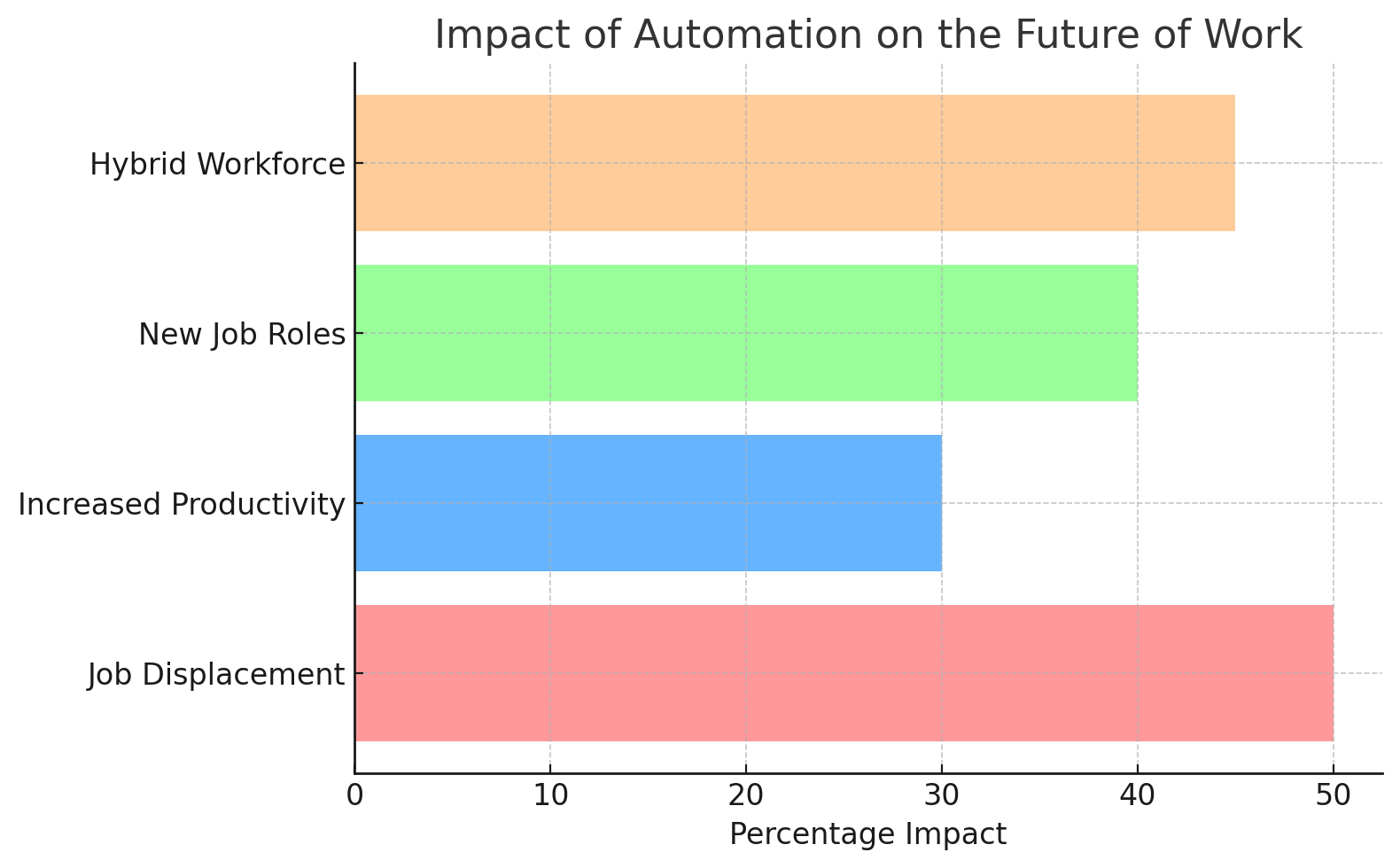Automation is no longer a distant concept—it’s actively reshaping industries and the way we work today. From manufacturing to retail and services, automation technologies like AI, robotics, and machine learning are transforming how businesses operate. But how is automation reshaping the future of work, and what can we expect in the coming decade? As automation continues to advance, the workforce is experiencing dramatic changes in job roles, skills demand, and business models.
If you’re interested in how AI contributes to business strategies, read more on The Role of AI in Modern Business Strategies.
The Rise of Automation in Key Industries
Automation is revolutionizing industries across the board. From automating repetitive tasks to boosting production efficiency, automation helps companies reduce costs and improve accuracy.
For example, in the manufacturing sector, robotics and AI are speeding up production while reducing human error. A World Economic Forum report highlights that nearly 50% of companies plan to accelerate the implementation of automation technologies in the next three years. This will result in significant changes in how businesses operate and the skills they require.
The retail industry is also seeing an automation revolution. Online shopping platforms use AI-driven tools for inventory management, customer support, and personalized recommendations. Automation is not only increasing efficiency but also transforming the customer experience.

Job Displacement and the Changing Skills Landscape
One of the most profound impacts of automation is the displacement of traditional job roles. Many manual, repetitive tasks are being taken over by machines, leaving workers to upskill or reskill. According to a Boston Consulting Group (BCG), automation could eliminate up to 20% of routine jobs, especially in industries like manufacturing, logistics, and customer service.
However, automation is also creating new opportunities. While certain jobs disappear, new roles are emerging in fields such as data science, AI development, and robotics maintenance. Workers with technical skills or the ability to work alongside automated systems will be in high demand.
To learn more about the benefits of automation for operational efficiency, check out How AI is Boosting Operational Efficiency in Modern Business Strategies.
Increased Productivity and Operational Efficiency
Another major advantage of automation is the increase in productivity and efficiency. Automation allows businesses to operate 24/7, reduce human error, and optimize workflows. A report by the OECD reveals that businesses leveraging automation have seen productivity gains of up to 30%.
In logistics, for example, automated warehouses equipped with AI-driven robots can sort, pack, and ship products much faster than human workers. Similarly, in customer service, AI-powered chatbots handle thousands of customer queries simultaneously, improving response times and customer satisfaction.
In my experience working with cross-functional teams on implementing automation strategies, we’ve seen significant improvements in efficiency and cost savings. By automating routine tasks, businesses can free up their workforce to focus on strategic initiatives that require human expertise, like creative problem-solving and innovation.
The Future of Work: A Hybrid Workforce
As automation reshapes industries, the concept of a “hybrid workforce” is becoming more prevalent. In this model, humans and machines collaborate, with each performing tasks suited to their strengths. AI and automation handle repetitive, data-heavy tasks, while humans focus on areas requiring emotional intelligence, creativity, and strategic thinking.
This hybrid workforce model is already visible in sectors like healthcare, where AI assists in diagnosing diseases, but doctors still make critical decisions. The future of work will involve more collaboration between human workers and automated systems, creating a more efficient and innovative workforce.
To understand how leadership plays a crucial role in adapting to such changes, take a look at Leadership in Uncertain Times: How to Adapt and Thrive.
Conclusion: Preparing for the Automated Future
Automation is undeniably reshaping the future of work. While it presents challenges, such as job displacement and the need for reskilling, it also offers tremendous opportunities for businesses and workers alike. By embracing automation and upskilling the workforce, companies can stay competitive in an increasingly automated world. As I’ve seen firsthand, the businesses that are willing to adapt and invest in automation technologies will lead the charge in the future of work.


